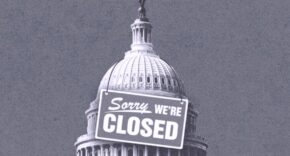The One Big Beautiful Bill Act, signed into law by President Trump on July 4, 2025, promised sweeping changes to the American healthcare system. Framed as a major legislative victory by Republicans, the bill aims to reshape drug pricing, Medicare spending, and Medicaid eligibility. While supporters highlight its long-term goals of innovation, affordability, and rural health access, critics warn it delivers short-term pain for patients and major wins for pharmaceutical companies.
As the dust settles, Americans are beginning to understand the real impact. For many seniors, drug prices will stay high. Medicare’s costs are expected to rise. And some of the very drugs patients rely on for survival are now shielded from negotiation.
Why Some Drug Prices Will Stay High
One of the most controversial aspects of the new law is how it changes the Medicare drug price negotiation program created by the Inflation Reduction Act in 2022. That earlier law gave Medicare the power to negotiate prices for high-cost drugs, with the goal of lowering out-of-pocket costs for seniors. But the One Big Beautiful Bill introduces new restrictions that delay or block price negotiations for some of the most expensive medications on the market.
Two provisions are at the heart of the problem. First, drugs that were initially approved for rare diseases, also known as orphan drugs, but later approved for more common conditions, will have their negotiation timeline reset. For example, Merck’s blockbuster cancer drug Keytruda was first approved in 2014 for advanced melanoma, a rare disease. When it received a broader approval for lung cancer in 2015, that reset the clock. Instead of being eligible for negotiation in 2026, the law now pushes it back to 2027.
The second provision fully exempts drugs that have been approved to treat several rare diseases but have not been cleared for common illnesses. Johnson & Johnson’s Darzalex falls into this category. According to the University of Washington, Medicare spent about 5.6 billion dollars on Darzalex in 2024. Under the new law, it will never be subject to price negotiation.
“This is a big win for the pharma companies, not necessarily for patients,” said Anna Kaltenboeck, a health economist who helped write the original price negotiation rules for the Senate. Senator Ron Wyden called the change “a Big Pharma Bailout,” accusing the Trump administration of handing drug companies a massive giveaway.
Medicare Patients Face Delayed Relief
The result of these provisions is that many seniors will continue paying high prices for some of the most commonly used cancer drugs. Medicare typically covers 80 percent of a drug’s cost when administered in a clinic, but patients are responsible for the remaining 20 percent unless they have supplemental insurance. For drugs like Keytruda, which had 13.5 billion dollars in gross Medicare spending in 2024, this could mean thousands of dollars in out-of-pocket costs for patients.
Sean D. Sullivan, a health economist at the University of Washington, said that the government would likely have saved billions in a single year by negotiating Keytruda’s price. “The negotiation program is only one part of a comprehensive agenda to increase transparency, promote competition, and make drugs affordable for seniors,” said a spokeswoman for the Centers for Medicare and Medicaid Services.
Merck supported the provision. In a statement, the company said, “We strongly believe this change will benefit patients, particularly those with difficult to treat rare diseases.”
Pharmaceutical companies and industry groups pushed hard for these changes. Lobbying disclosures show that Merck, AstraZeneca, and major industry organizations spent heavily to influence the bill. Critics say the result is a law that protects company profits while forcing seniors to wait longer for relief.
Premiums for Drug Plans Are Going Up
While some drugs are shielded from negotiation, premiums for Medicare Part D drug plans are headed in the other direction. According to Medicare officials, premiums are expected to rise “a lot” in 2026. The increase is partly due to the end of a subsidy program that provided 6.2 billion dollars in extra funding to insurers in 2025. The Trump administration plans to cut that funding by 40 percent next year.
Chris Klomp, who leads the Center for Medicare, explained the administration’s reasoning. “This is all about trying to maintain affordability against a massively increasing backdrop of expense,” he said. But Klomp also acknowledged that continuing the full subsidy “would have benefited a handful of insurers and cost an enormous, excess amount of taxpayer money.”
The remaining subsidies will save enrollees an average of 13.50 dollars per month, but that will only soften the blow. Premium increases will vary widely depending on the plan. Without the extra subsidies, Avalere Health estimates that average monthly premiums would have been between 42 and 46.50 dollars in 2025. Instead, they were about 36 dollars, an 18 percent difference. That gap will likely vanish in 2026.
Budget Pressures Are Growing
The Congressional Budget Office now estimates that the exemptions and delays added to the negotiation program will cost Medicare at least 5 billion dollars over the next 10 years. But that number does not include some high-cost drugs like Keytruda, which the CBO will re-evaluate. The actual cost may be much higher.
In addition, the new law redesigns Part D drug coverage, increasing financial risk for insurers while also reducing out-of-pocket costs for some enrollees. Without the full subsidy program, more seniors may be pushed into Medicare Advantage plans, which bundle drug and medical coverage through private insurers.
These changes come at a time when overall Medicare and Medicaid spending is under pressure. The law cuts more than 900 billion dollars from Medicaid, largely by imposing new work requirements, eligibility checks, and reductions in provider tax programs. Critics say these changes could result in 11.8 million people losing Medicaid coverage by 2034.
Who Benefits and Who Pays
Supporters of the bill say that the changes to drug pricing rules protect incentives for innovation, especially for rare diseases. Daina Graybosch, a pharmaceutical analyst, said the new rules make it more attractive for companies to target small populations first, since those approvals are faster and cheaper. “Under the old rules, companies were less likely to test their drugs in narrow disease areas,” she said.
On the other hand, groups like Patients for Affordable Drugs Now are furious. Merith Basey, the group’s executive director, said, “Patients are infuriated to see the Senate cave to Big Pharma by reviving the ORPHAN Cures Act. This is a blatant giveaway to the pharmaceutical industry that would keep drug prices high for patients while draining 5 billion dollars in taxpayer dollars.”
AbbVie CEO Rob Michael praised the changes, using his company’s blood-cancer pill Venclexta as an example. “That’s an example of a good policy change where innovation is being rewarded and not penalized,” he told analysts.
The One Big Beautiful Bill touches nearly every corner of the healthcare system. While it expands access to telehealth and creates a rural health transformation fund worth 50 billion dollars, it also raises costs for millions of Medicare beneficiaries and delays the savings that drug negotiations were supposed to deliver.
High-profile executive orders by President Trump have aimed to lower drug prices by giving Americans the same pricing benefits as other countries. But whether these goals will be realized remains uncertain. As Boston University health policy professor Alan Sager put it, “Whether this will signal a durable and meaningful cut in extraordinarily high US drug prices is very unclear. This is rhetoric, not reality.”
For now, the bill represents a political victory, but the financial consequences are already being felt. The winners include pharmaceutical companies and lobbyists. The losers may be the patients who continue to pay some of the highest drug prices in the world while waiting for promised relief that may never arrive.











